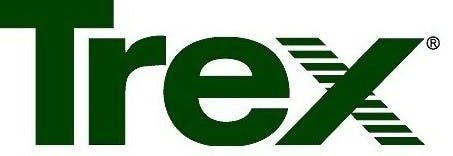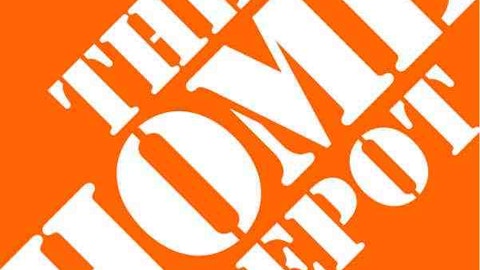In Peter Lynch’s classic book, One Up On Wall Street, he talks about a class of investments he calls “Turnarounds.” For the most part, a true Lynch Turnaround has been well-established in its business, and that business has somehow lost its way, sending the stock to the trash heap and investors fleeing in droves. And while Trex Company, Inc. (NYSE:TREX) isn’t really a classic Turnaround, there are plenty of similarities that investors can take advantage of. And despite the fact that the share price is tiptoeing around its all-time high, the turnaround of the housing industry is the key here. And while there is strong motivation to fear the recovery as the beginning of another bubble, Fool Contributor Morgan Housel says best, why this isn’t likely to be the case:
Finally, we might call the housing market a bubble if a growing share of Americans were becoming homeowners, as lending standards dropped. But the opposite is occurring. According to the Census Bureau, the homeownership rate is now at the lowest level since 1995.
Industry turnarounds create opportunities
As Housel stated in another article earlier this year, the best way to look at the housing market is seeing where the level of new home construction sits today, versus historical trends. Last year, around 800,000 houses were built, while the “bubble” years saw construction levels spike to 2.5 million new homes per year. The sweet-spot is in the neighborhood of 1.5 million, which Housel points out is the historical average from 1960-2007.
This nearly 50% growth opportunity in the residential construction market does a lot of things for the economy: It creates lots of good paying jobs; sells a lot of trucks; and increases consumer spending as a result of higher employment and home ownership levels.
Pickup truck sales are an interesting economic indicator of sorts, with the strong monthly sales results we keep seeing pointing to continued strength in the construction market. And while every Ford Motor Company (NYSE:F) F-Series doesn’t end up on a job site, a large enough percentage of them do to point towards sustained strengthening. As to Ford, the cyclical upswing of the highly profitable truck division is one of the reasons it’s worth a look for investors. Need a few other reasons? How about almost no operational debt, a strong cash position, a nice 2% dividend that management has committed to increase regularly? How about consistent profitability even as Europe continues to struggle? That should whet your appetite a little.
Caveat: A lot of debt on Ford’s balance sheet is attributed to Ford Motor Company (NYSE:F)’s finance arm, which generated over $1.7 billion in before-tax earnings last year. Another large source of debt is long-term pension obligations, with it pays over many years, and has committed to paying more than $5 billion towards this fiscal year alone. It’s important to remember that, like other forms of risk, all debt isn’t created equal.
Others have pointed to home improvement retailers The Home Depot, Inc. (NYSE:HD) and Lowe’s Companies, Inc. (NYSE:LOW) as good investments to take advantage of the housing recovery; I’m not one of those people. While both companies are well-run and established, I just don’t see the long-term investment potential for either of these companies. Both trade near the high end of their historical forward Price to Earnings valuations, so neither of these companies are bargains today. Lastly, the ~1% dividends paid by both don’t really offer much for income seekers, either, so there just doesn’t seem to be much upside for investors to buy today.
A growing player in a growing niche
Its’ a different story for Trex Company, Inc. (NYSE:TREX), which is featured at both Lowe’s and The Home Depot, Inc. (NYSE:HD). According to Trex’s own estimates, its core business of composite, wood-alternative decking material is part of a nearly $3 billion segment of the $170 residential construction market. Today, Trex and its peers, all of which are privately held, make up only about 1/3 of that $3 billion dollar market: Trex commands over 35% of this segment-within-a-segment, with $315 million in annual sales last year. And yes, while this is still well below its 2007 sales of over $365 million, don’t forget that in 2007 Trex was in many ways a broken company.
In 2007, when the company generated over $365 million in revenue, it was also carrying over $130 million in debt and over $80 million in inventory, which along with other inefficient practices, led to negative cash flow of $25 million in 2007 despite $15.7 million in net income. Simply put, the weight of $210 million in debt and inventory (much of which would eventually be written off and trashed) was drowning the company. Factor in a number of impending lawsuits due to poor product quality, and costly and inefficient manufacturing processes, and the company was in real trouble.
Fast forward to today
Management has lived up to its promises to streamline the business and focus on quality. Inventory levels were below $20 million at the end of 2012, primarily the result of shifting to a “just in time” manufacturing model. Additionally, net debt at the end of 2012 was under $2.8 million. Today, the company has access to a $70 million line of credit, which is shown on the balance sheet under liabilities. Also, there have been several class-action lawsuits that have been resolved and settled. And while this is a black mark on the company, Management’s efforts to confront and deal with these issues head-on means it can move on.
The business performance is really starting to show returns. Net margins in 2012 were over 34%, up from 23.9% in 2008. This is enormous- a nearly 50% increase in the ability to generate profits. The company generated FCF of over $53 million in 2012, and operating income of $36.3 million, on “only” $307 million in revenue. Plain and simple, this leaner, meaner company can really make some cash if the housing recovery is as sustained as it looks to be. And with the Olive Branch, MS plant still shuttered since 2008, there is room to expand capacity without a massive Capex. This is really important, since it means profitable growth.
Competitive advantages and where the focus lies
Trex Company, Inc. (NYSE:TREX) has done an excellent job of reducing the cost of production, meaning that it can be aggressive with pricing if needed. But more importantly, it has positioned itself as the best product, and will command a premium for its products based on design quality, durability of product, and aesthetic. But most importantly, the company leverages its relationships with dealers, distributors, and installers, using incentives to reward them for sticking with Trek products.The company has found that installers become very loyal to the brands that they work with, and focuses on rewarding these key business partners. When a contractor becomes comfortable and familiar with a product, many times the perceived “switching costs” are high. And when you are working on something as emotional and personal as someone’s home, being able to live up to your client’s expectations can mean the difference between future referrals and a lawsuit. On the company’s IR website there is an “analyst day” presentation with a few slides that talk about this- I suggest you check it out.
Factor in the most aggressive consumer marketing in the business, including Martin Sheen and chef Tyler Florence, and there are plenty of reasons for both professionals and consumers to seek the Trek product.
Foolish bottom line
Trex Company, Inc. (NYSE:TREX)’s management has a goal to grow annual revenues by $300 million within five years, effectively doubling the size of the company. And while this is an aggressive goal, this is a management team that has shown over the past five years, the ability to execute on a plan, so I have faith that they can pull it off. Factor in the strong economic environment that the housing sector seems to be in, and I think we may look back in five years and see today’s share price as having been a real bargain.
What do you think? Share in the comments below!
Jason Hall owns shares of Ford and manages an account that owns Trex. The Motley Fool recommends Ford, Home Depot, Lowe’s, and Trex. The Motley Fool owns shares of Ford and Trex.
The article The Housing Recovery: Don’t Be Afraid originally appeared on Fool.com.
Copyright © 1995 – 2013 The Motley Fool, LLC. All rights reserved. The Motley Fool has a disclosure policy.





